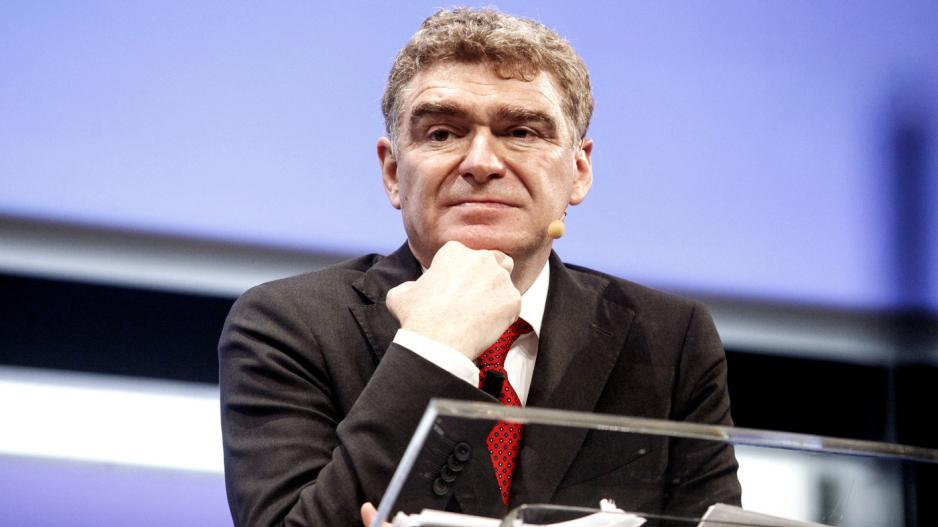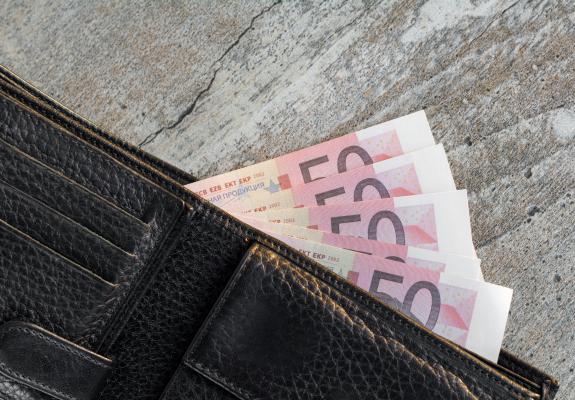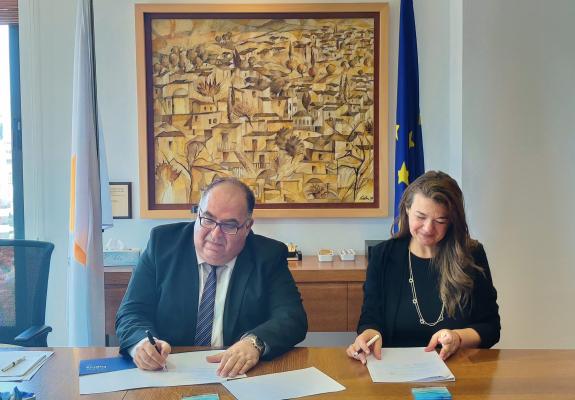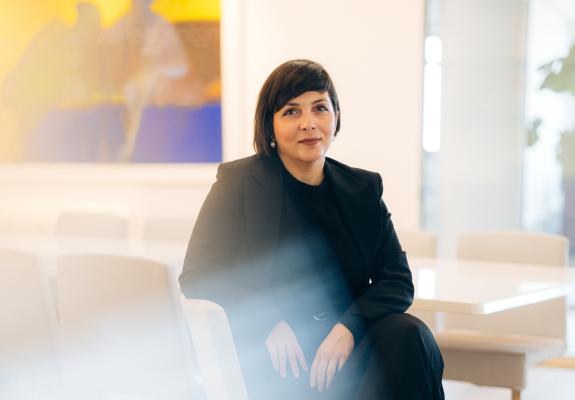M. Nava: 'Bicommunal Solar Park to Boost Energy Cooperation in Cyprus'
Nava Also Noted That This Year Marks the 20th Anniversary of the EU Green Line Regulation and That Green Line Trade Is at Its Highest Ever
A bicommunal solar park in the buffer zone will enhance energy cooperation and build trust between Greek and Turkish Cypriots, stated Mario Nava, Director-General of the European Commission's Structural Reform Support (DG REFORM), in an interview with the Cyprus News Agency. Nava, who has recently been reassigned to the Directorate-General for Employment, Social Affairs, and Inclusion (DG EMPL), was responsible for measures supporting the Turkish Cypriot community.
Asked about the current status of the proposal to construct a bicommunal solar park in the buffer zone, Nava said, "I am pleased that the first step, an EU-funded feasibility study for this project, has been completed." He added that he presented the study's findings to the negotiators of both communities at the end of February.
He explained that the next step is for the two communities to agree on the location, the proposed technological and technical solutions, and decide on each community's investment level, ownership, and the division of electricity produced. "We expect news from the negotiators soon. If there are differing views or concerns, the Commission is ready to help find solutions," he added.
Speaking to CNA about the benefits of creating the park for both communities, Nava said that a bicommunal solar plant "would be very valuable." Most importantly, he continued, it would increase cooperation in the critical energy sector and build trust, adding that it would also help "green" the electricity networks of both communities and reintegrate them to some extent.
"We also hope it will inspire more solar energy projects, for which there is great potential in Cyprus due to the sunny weather. So far, there is no solar energy unit on the island with storage capability, which is crucial for ensuring power supply after sunset. This project opens new avenues in this regard," he said.
Referring to projects supported by the EU through its programs for Turkish Cypriots, Nava said the EU's primary tool for supporting the Turkish Cypriot community is the assistance program. He explained that this helps pave the way for Cyprus's reunification, noting that independent evaluations of the assistance program have shown it has "kept alive" the prospect of reunification.
Mario Nava also emphasized that Greek Cypriots benefit directly from certain actions, such as the work of the Committee on Missing Persons, which searches for the remains of missing Greek and Turkish Cypriots.
He also mentioned that other actions under the assistance program specifically target the Turkish Cypriot community, but always with the view of facilitating Cyprus's reunification, which will benefit both communities.
Nava pointed out that the EU invests in the socio-economic development of the Turkish Cypriot community to reduce economic disparities, citing examples like strengthening the private sector through grants and advice and improving the quality of education.
Furthermore, he said, "We enable Turkish Cypriot students to study at EU universities to bring them closer to the EU. We provide information about the EU and promote alignment with its legislation and standards."
Responding to a question about whether the Turkish Cypriot community is ready to implement the EU acquis in case of reunification, Nava noted that the Commission has made efforts to support the Turkish Cypriot community in adopting EU standards.
Since 2006, when the assistance program started, "we have mobilized more than 260 EU experts who have worked with Turkish Cypriot local authorities to apply EU standards in 15 different areas, such as agriculture, health, environment, metrology, statistics, and market surveillance." These experts have also helped draft over 240 legal texts aligned with the EU acquis.
He mentioned that recently, with the designation of halloumi as a Protected Designation of Origin (PDO) product, there have been notable efforts from the Turkish Cypriot community to comply with EU food safety and animal health standards. He noted significant improvements in animal health and the elimination of animal diseases.
However, he continued, the Commission needs to conduct a comprehensive assessment to get a full picture of the alignment with the EU acquis. "This can happen when Cyprus is closer to reunification, as during the last round of negotiations in 2015-2017," he said, adding that "re-establishing the ad hoc committee on EU affairs would be one step toward reviving this process."
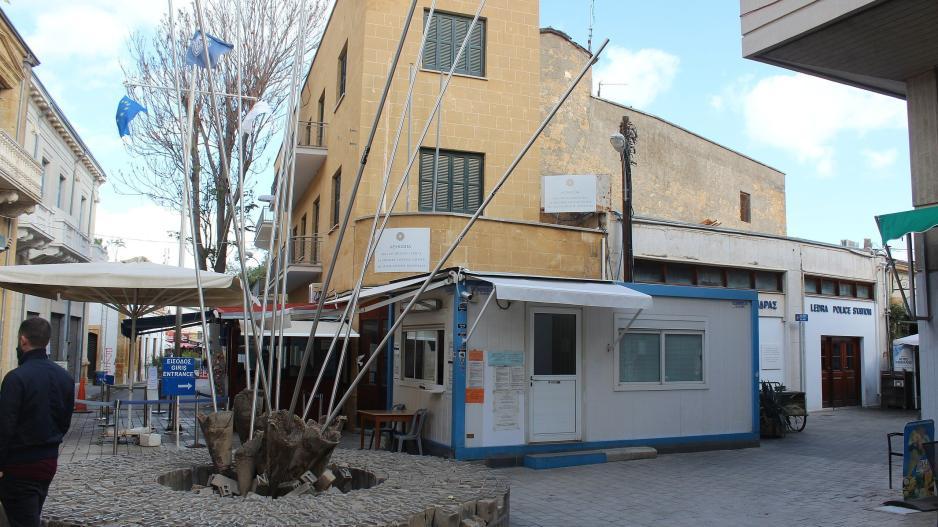
Discussing Green Line trade, Nava noted that the Green Line increases trust and cooperation, bringing the two communities closer together, thus paving the way for Cyprus's reunification.
He added that it also provides immediate and tangible benefits to both communities. "Turkish Cypriot producers gain access to a larger market—provided, of course, that their products comply with EU standards. Greek Cypriot traders have access to competitive prices and can offer their consumers a wider variety of safe, EU-compliant products," he said. The purchase of Greek Cypriot products and materials by Turkish Cypriot producers also has significant growth potential, he added.
Nava noted that this year marks the 20th anniversary of the EU Green Line Regulation and that Green Line trade is at its highest ever, explaining that it exceeded €16 million in 2023. "When I started at DG REFORM, it was around €4 to €5 million annually, so it has almost quadrupled," he said.
"I am proud that the Commission has contributed to this increase. We promoted Green Line trade among Turkish Cypriot producers, helped them comply with EU standards, and supported the introduction of more products into Green Line trade. We also opened the 'EU One Stop Shop' last year, which provides support and advice to businesses from both communities interested in Green Line trade," he added.
He emphasized that this upward trend is positive and hoped it would continue. He also expressed his belief that if Green Line trade further increases, it could contribute to the country's economic reconstruction, which, as he noted, would bring Cyprus closer to reunification.
Discussing other EU initiatives to bring the two communities closer, Nava said the Commission is currently focusing on Green Line trade and implementing the PDO status for halloumi/hellim, adding, "We would be happy to support other confidence-building measures agreed upon by the two communities that would facilitate Cyprus's reunification."
Referring to the biggest challenge he faced during his duties in Cyprus, Nava said, "The biggest challenge is often enabling the start of dialogue (between the two communities) on many issues, big or small," adding, "Nevertheless, we managed to make tangible progress in various areas, which means that through dialogue, persistence, and demonstrating mutual benefit, you have the opportunity to overcome it."
